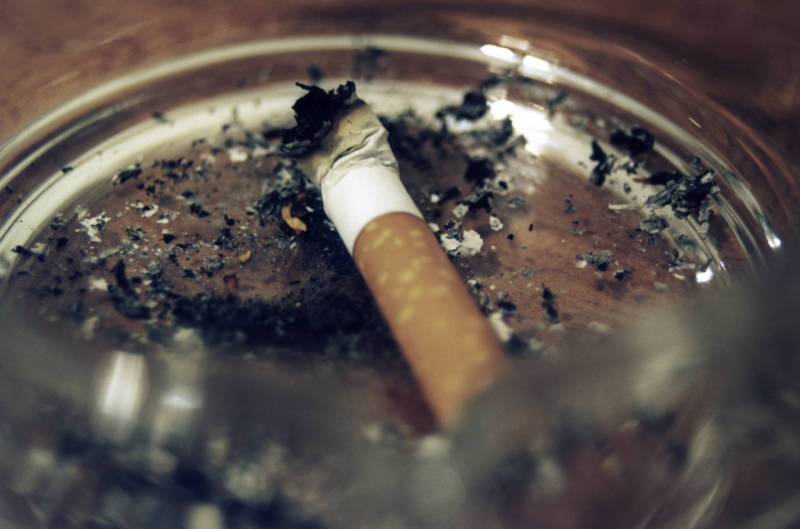Starting with the FDA: E-cigarettes had been largely unregulated. The liquid nicotine product was "of varying quality and unknown provenance," says the New York Times.
Now, producers of e-cigarettes will have to provide the FDA with a detailed list of the ingredients in their products, and information about the manufacturing process.
You can read the full 499-page document from the FDA here.
New California Laws
The five bills signed last night by Gov. Brown have to do with who can buy tobacco/e-cigarettes and where they can use them.
While the federal government sets the age to buy tobacco at 18, states may raise the age. (Lowering it would likely be pretty tough.) California has become the second state, after Hawaii, to raise it to 21.
The goal with this change is to get cigarettes out of the hands of young teens. Plenty of kids 15 to 17 years old have friends who are 18 and can illegally buy cigarettes for them. But not as many young teens have friends who are 21.
A second major bill will require that e-cigarettes be regulated as tobacco products, meaning that you will need to be 21 to buy e-cigarettes. In addition, e-cigarette use will not be permitted anywhere that traditional cigarette use is not allowed.
"What our bill does specifically is bring e-cigarettes," says Sen. Mark Leno, D-San Francisco, who wrote the bill, "under our smoke-free laws in California, which determine where someone can use a tobacco product."
Those smoke-free areas include restaurants, all indoor workplaces, plenty of public parks, government buildings and more.
Yet a third law approved yesterday expands the places subject to smoke-free laws. Going forward, there will be no lighting up -- either a traditional or an e-cigarette -- in hotel lobbies, banquet rooms and small businesses.
The FDA's new regulations will take effect in about 90 days, and e-cigarette manufacturers have two years from that date to submit their first application for their devices or products.
But in California, the five laws were initially approved in a special session on health care. Laws passed in a special session take effect 90 days after the session ends. That's June 9, just five weeks away.
